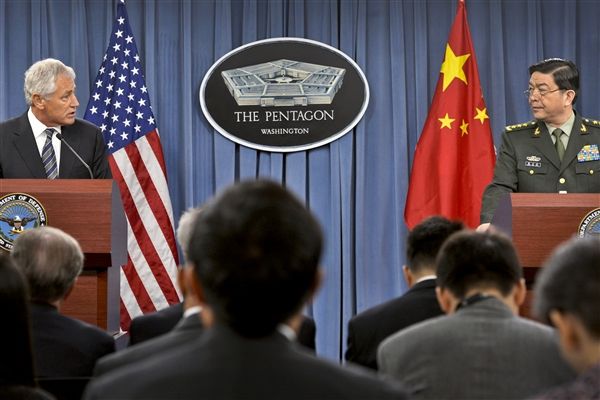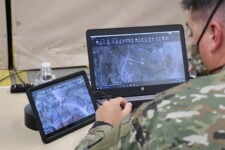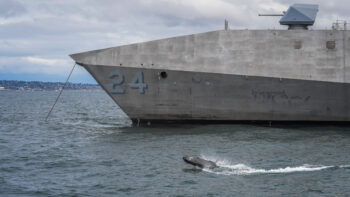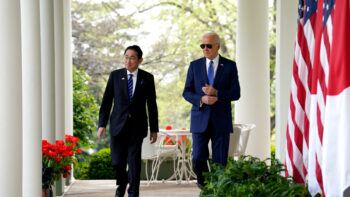 PENTAGON: The kabuki of high-level international press conferences often successfully softens the sharp divisions that may lurk beneath the surface of the relationship between two countries. When those countries are a burgeoning China and a wary United States it’s almost impossible to hide all the differences and so it was at today’s press conference featuring Defense Secretary Chuck Hagel and Chinese Defense Minister Gen. Chang Wanquan.
PENTAGON: The kabuki of high-level international press conferences often successfully softens the sharp divisions that may lurk beneath the surface of the relationship between two countries. When those countries are a burgeoning China and a wary United States it’s almost impossible to hide all the differences and so it was at today’s press conference featuring Defense Secretary Chuck Hagel and Chinese Defense Minister Gen. Chang Wanquan.
Compared with past visits, this one did make very clear how much the bilateral military relationship is blossoming and appears to be stabilizing after years of uncertainty. Three days before leaving for a major Pacific trip including meetings with ASEAN defense ministers, Hagel ticked off: China’s participation next year in our largest naval exercise in the Pacific, Rim of the Pacific exercise, known as RimPac; general expansion of bilateral exchanges such as the recent participation of Chinese midshipmen at the Naval Academy; the Military Maritime Consultative Agreement Working Group is meeting today in Hawaii with a focus on humanitarian assistance and disaster relief; this weekend the two navies will conduct the second counter-piracy exercise in the Gulf of Aden; and the two sides are working together “to actively explore a notification mechanism for major military activities and continue to study the rules of behavior on military air and maritime activities,” Chang said through an interpreter.
Perhaps the most intriguing commitment will be regular exchanges between the J-5, the Joint Staff’s strategic plans and policy directorate, and the People’s Liberation Army’s strategic planning department. One assumes the U.S. military won’t share its highly classified strategic planning regarding China, so it’s likely the exchanges will focus on what used to be called operations other than war and are now often called humanitarian assistance, disaster response (HADR).
Then came the sticky bits. When a reporter asked Gen. Chang (pronounced chong) about China’s cyber espionage and attacks on the United States the general said — to no laughter from anyone in the press corps — that “the Chinese military has never supported any kind of hacker activities.” In fact, he repeated the Chinese claims (probably true) that “China is one of the primary victims of hacker attacks in the world.” (Note to NSA: you appear to be doing your job well.) The two countries recently established a cyber working group to explore these issues.
Of course, the two teams hammered away at regional security issues, including North Korea, the East China Sea and the South China Sea. No details on those, presumably because they are too sensitive to subject to public discussion.
The one other sticky bit, and perhaps the most enjoyable moment of the press conference, came when Gen. Chang answered a questions about America’s Pacific pivot. China would, he said through the translator, “like to have this rebalance strategy rebalance on other countries as well.” We bet you would!
‘The bad day’: DISA’s forthcoming strategy prepares for wartime coms
“It’s great to have internet day to day in peacetime,” said Lt. Gen. Robert Skinner, director of the Defense Information Systems Agency, “but it’s more imperative to have it when bullets are flying.”


























